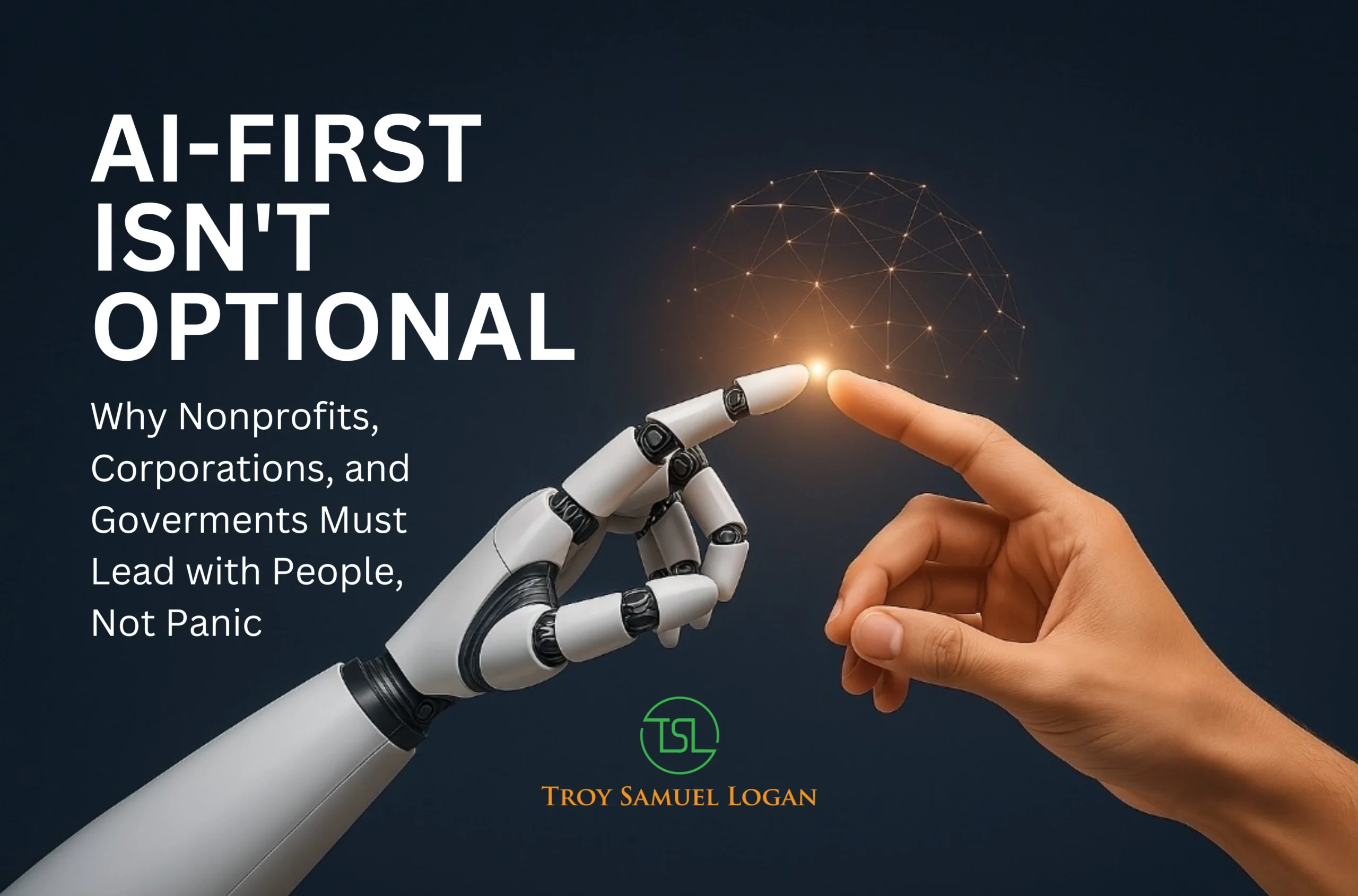I used to think I had to be a technologist to be in tech. That if I didn’t code, design, or work in Silicon Valley, I had no place in the conversation.
But here’s the thing — I was always in it.
Long before AI hit the mainstream and digital dashboards became our norm, I was sitting at tables consulting on the one thing every sector ignored for too long: the human factor.
The Cost of Ignoring the Shift
We’re at a crossroads — and not just in tech, but in leadership.
Nonprofits still think AI is a “nice-to-have.” Corporations are spending on tools without investing in talent. Government systems are aging while trying to regulate a world they barely understand.
Let’s be clear: the risk isn’t AI replacing people. It’s organizations failing to reskill and upskill the people they have — and losing relevance in the process.
My Story: Consulting Without the Badge
I didn’t start in tech.
I wasn’t given a mentor in that space, and I never wore the hoodie of a Silicon Valley founder. But I was always watching — tracking trends, analyzing impact across sectors, and helping organizations future-proof their work before it became trendy.
Whether it was housing for vulnerable youth, data strategy for nonprofits, or policy planning inside government teams, I paid attention to evidence. That attention became leadership.
So no, I wasn’t “in tech.” But I was tech-adjacent — and often, the one pulling others in with me.
Why AI-First is People-First
To be AI-first, you must first be people-first.
That means investing in digital literacy, workplace transformation, and accessible systems that don’t just look modern but act modern.
The truth is, you can’t transform an organization by installing AI and hoping culture catches up.
Upskilling and reskilling are not HR trends — they’re survival strategies.
– In nonprofits, they protect mission integrity.
– In corporations, they retain talent and foster innovation.
– In governments, they modernize service delivery and rebuild trust.
What Happens If We Don’t?
Let me be honest.
If we don’t invest in our people — if we let fear, fatigue, or bureaucracy delay transformation — we’ll fall behind. And not just technologically, but morally.
We’ll leave youth out of job markets, alienate communities who deserve digital access, and build systems that serve few while excluding many.
That’s not leadership. That’s negligence.
So What Now?
This is the moment.
The question isn’t whether AI belongs in your sector — it already does.
The question is: Will your team be ready to lead it — or will they be left to adapt alone?
Let’s stop waiting.
Let’s start building.
Because silence isn’t strategy — action is.

